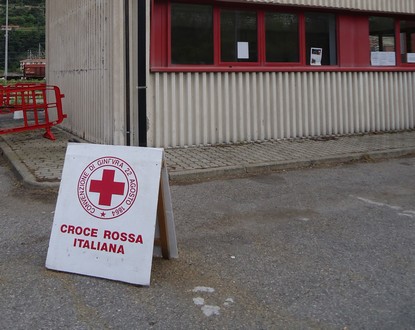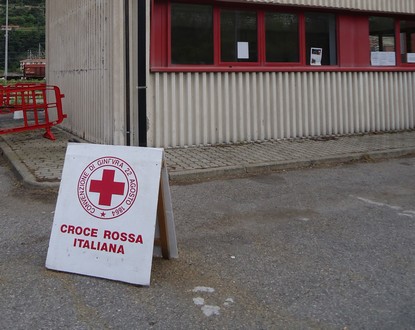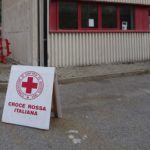The Member of Parliament for Alpes-Maritimes, Rudy Salles, spoke yesterday afternoon – his parliamentary assistant informs us in a press release – during questions to the Government, to alert the Minister of Foreign and European Affairs, Alain Juppé, about the particularly concerning situation at the border between Libya and Tunisia.
 Who can deny that we are facing a complex, complicated, and hardly manageable problem? No one has the solution (does it really exist?) but it is known that politicians, when they don’t know what to do, always try to pass the buck to others!
Who can deny that we are facing a complex, complicated, and hardly manageable problem? No one has the solution (does it really exist?) but it is known that politicians, when they don’t know what to do, always try to pass the buck to others!
“Indeed, since the beginning of events in Libya, a wave of refugees from that country, estimated at 200,000 people in a country of 10 million inhabitants, has arrived in Tunisia. To make a comparison, this would be equivalent to 1,200,000 people arriving in France in a few weeks.
Tunisia itself is in a very difficult economic and social situation, this phenomenon risks jeopardizing the success of the democratic changes underway in this country.
Furthermore, the health and social situation of the affected populations is dramatic. Many Libyans try to flee on makeshift boats heading towards Europe” the statement continues to end with: “Faced with a true humanitarian disaster set in the Mediterranean, the Nice MP questioned the State Minister on France’s and Europe’s next actions that would allow Tunisia to cope with this influx of people and thus prevent a new wave of clandestine migration to Europe.”
If Georges Clemenceau said, “War is too serious a thing to be left to the military,” can we say that “serious matters are too difficult to be left to politicians?”
It is understood that during election periods, it is good to go fishing for votes, but wouldn’t it be better to have a slightly more insightful perspective?
To better understand the themes and stakes we suggest to our readers, here are two other statements on the same issue published in the national press:
Hans-Peter FRIEDRICH (Minister of the Interior of the Federal Republic of Germany): “The principle of free movement within the EU must not be called into question under any circumstances. This free movement, decided by Helmut Kohl and François Mitterrand, is one of the most tangible achievements of European integration for our citizens. But it is also important that the Schengen system be reinforced to deal with exceptional situations.”
“Italy complains of a lack of solidarity from Northern Europe to help it deal with the influx of immigrants?
Italy has no reason to complain about a lack of solidarity. Barely 25,000 immigrants have arrived in Italy since the start of the democratic uprising. Most of them immediately continued their journey north, particularly to France and Belgium. A large country like Italy can accommodate without much difficulty the about 10,000 or 12,000 refugees who have chosen to remain on its territory. Solidarity also means fulfilling one’s own obligations. Over the past year, Germany alone has accepted more than 40,000 asylum seekers.”
Laura Boldrini (spokesperson for the United Nations High Commissioner for Refugees in Italy (UNHCR)): “There is no emergency in the strict sense of the word. Let us recall that 720,000 people have already fled Libya for Tunisia. Only 10,000 have reached Lampedusa, which is a manageable number when compared to the 60 million Italians. The situation has completely changed. These people from Somalia, Niger, Ivory Coast have already fled a war before arriving in Libya where another war is chasing them away. This wave of immigration is a collateral damage of war. Most of the new arrivals have, moreover, applied for asylum in Italy. But all of Europe must take its responsibilities by opening its borders more and sharing the welcome.”



